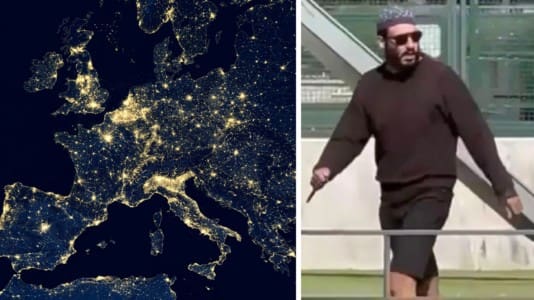A top Polish magazine editor is calling for the Polish government to hold a national referendum on the EU Pact on Migration and Asylum, warning that the new law, which allows for the forced relocation of migrants to countries across Central Europe, is going to radically change the ethnic composition of the countries most opposed to mass immigration.
“The European Union, using legal tricks to bypass the European Council, is trying once again to make all EU states take in relocated migrants. A decision taken in violation of the treaties was adopted despite opposition from Poland and Hungary,” writes Jacek Karnowski, the editor of the influential Polish conservative weekly magazine Sieci
“No doubt the European Parliament will endorse this madness. Let’s not kid ourselves. It is not about just 2,000 in the first tranche. It’s about securing a system through which they can process 20,000, then 200,000 and finally 2 million (migrants),” he continued.
“This is not about migration. It’s about changing the ethnic composition of Central Europe, so it has the same ghettos and ‘no-go’ areas as in the West.”
The new law must now only pass the European Parliament, where it is expected to do so by a large majority. Once in effect, then countries have two options: either accept migrants being relocated from other EU countries or pay a massive fine of €20,000 per rejected migrant. As Remix News previously reported, these fines could quickly add up to billions for countries.
Polish Prime Minister Mateusz Morawiecki has vowed to oppose the migrant quotas. Morawiecki has said that Poland will not only not accept any forced migrant relocations but would also refuse to pay any fines for rejecting the migrants.
Meanwhile, Hungarian Prime Minister Viktor Orbán wrote on Twitter last week, “This is unacceptable! They want to turn Hungary into an immigration country by force!”
[pp id=80717]
The Polish editor Karnowski, along with other prominent academics, intellectuals, policymakers, and politicians, is urging the Polish government to launch a national referendum on the issue.
Karnowski is calling on the Polish government to “stand firm.” He says in his opinion piece: “It must put forward opposition not only from the government but also the president too, and that stance must be backed by the people.
“This is why I believe it is right to hold a referendum on the matter — a referendum on how Poland is to look in the future. The people have the right to have a say on whether they want their towns and cities to look like those in Germany.”
[pp id= 80794]
Karnowski proposes to hold the referendum during the parliamentary elections this autumn. Putting the question to a referendum may help shore up support for the conservative government, but it may also bolter the Confederation party, which is seen as far more hardline on the issue of immigration than the Law and Justice (PiS) party. Confederation has harshly criticized PiS due to the record number of Asian migrants entering the country.
“Let those who hold the power in Brussels hear the voice of the Polish people loud and clear,” he wrote in conclusion.






